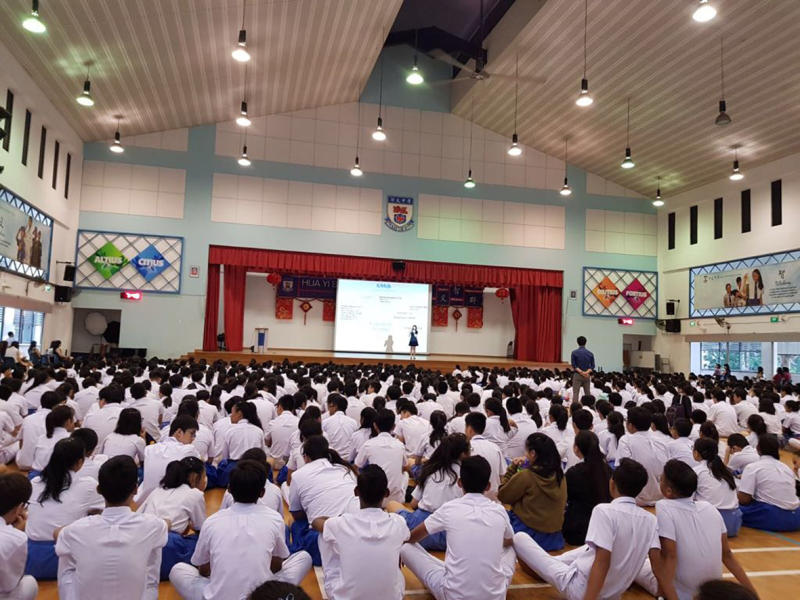Teachers feel equity and cultural diversity in schools important: Teaching survey
Sign up now: Get ST's newsletters delivered to your inbox

The survey also found that Singapore has a high proportion of teachers working in schools where policies and practices on cultural diversity are implemented.
PHOTO: VENEZIA WEE
Jolene Ang
Follow topic:
SINGAPORE - Almost all teachers in Singapore have positive beliefs about equity and diversity in the classroom, a survey by the Organisation for Economic Cooperation and Development (OECD) has found.
The Ministry of Education (MOE) on Wednesday (June 19) released the results of the Teaching and Learning International Survey (Talis) 2018, a five-yearly study of lower secondary teachers and principals that involved 48 education systems around the world this year.
In Singapore, 99 per cent of principals said most of their teachers feel that schools should encourage students from different socio-economic backgrounds to work together, and that respecting other cultures is something students should learn as early as possible. Across the OECD countries, similar statistics were observed.
Talis also found that Singapore has a high proportion of teachers working in schools where policies and practices on cultural diversity are implemented.
For example, 99 per cent of Singapore teachers said their schools organise multicultural events, compared to 55 per cent of teachers across the OECD countries.
Another 95 per cent of Singapore teachers said their schools teach students how to deal with ethnic and cultural discrimination, compared to 80 per cent of teachers across the OECD countries.
These beliefs and practices have also seen improvements in the special education scene: Since 2013, more teachers here have been trained to teach students with special needs, the survey found.
Some 35 per cent of teachers in Singapore have received training on teaching students with special needs, compared to 23 per cent in 2013 when the Republic first took part in the survey.
The latest figure is still lower than the 43 per cent of teachers across the OECD countries who have had special education training.
However, the survey report noted that on average, a smaller percentage of teachers in Singapore work with special needs students, which it defined as "those for whom a special learning need has been formally identified because they are mentally, physically or emotionally disadvantaged".
When it comes to training to teach special needs students as part of their formal training, about 79 per cent of Singapore teachers reported that they had received it, compared to 62 per cent of OECD teachers.
Another 54 per cent of local teachers said they felt prepared to teach in such settings when they finished their studies, compared to 44 per cent of OECD teachers.
The number of children with mild special educational needs in mainstream schools here has doubled from 13,000 in 2013 to about 26,000 last year.
In Singapore, about 3,300 teachers and 167 principals from all 157 secondary schools and 12 private schools selected at random took part in the online questionnaire from September to October 2017.
About 260,000 teachers around the world took part in the survey.
MOE's director-general of education Wong Siew Hoong told reporters on Wednesday during a media briefing on the survey that the ministry would be reviewing how to help teachers be better equipped in the field of special education.
"Our schools have become increasingly inclusive, as we have more students with special needs who can access mainstream curriculum. Our teachers are trying their best to see how they can work with these students as effectively as possible," he said.
"Teachers, through this survey, have indicated their need for more professional development in this area. We have been reviewing this - and we will be reviewing this more - to see what more professional development programmes our teachers can undergo, to become more effective teachers in supporting more students with special needs."

